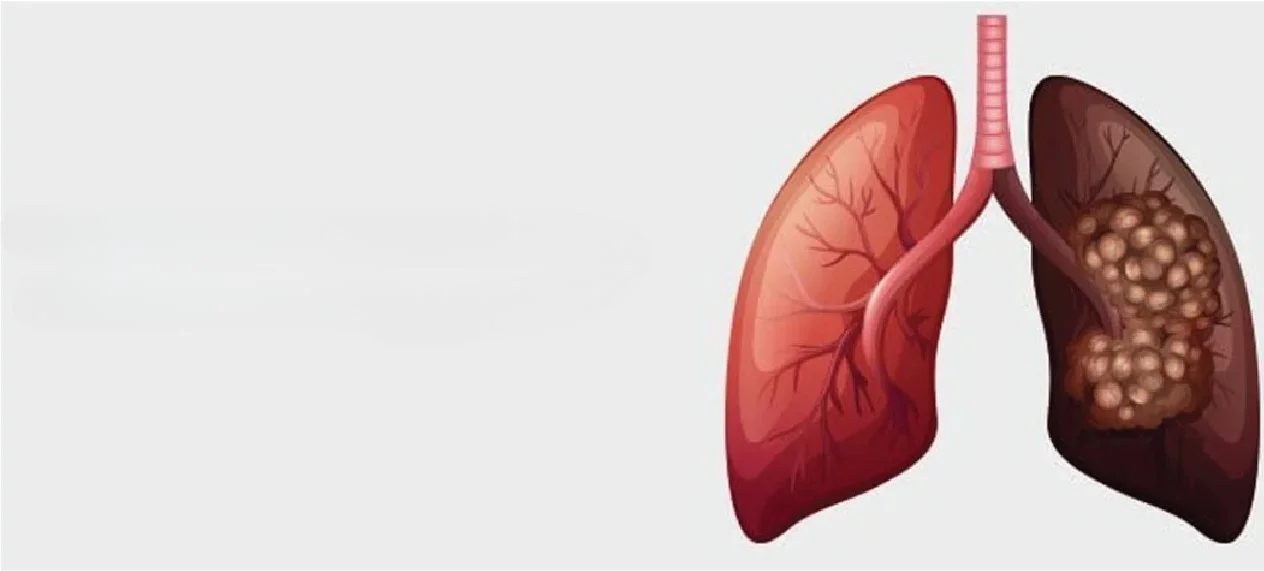
Lung Cancer starts in the Lungs. Lungs are found in a pair in our body. It is spongy in nature as it expands and requires inhalation and exhalation. When we inhale or exhale, our chest expands and contracts while we breathe. The diaphragm also moves while we inhale oxygen and exhale carbon dioxide. Changes in lifestyle, environmental factors, pollution, and smoking are the major reasons for lung cancer. Chain smokers are at greatest risk of lung cancer along with people who are in contact with smokers. Passive smoking is more dangerous than active smoking as the person inhales a lot of smoke continuously without any problem. Lung cancer is caused when the normal cells grow continuously without stopping. In order, to reverse the cell cycle it is necessary to change a life, induce healthy eating habits, quits smoking, and consult a doctor as early detection plays a vital role in curing cancer.
Though Lung Cancer can affect anyone there are certain factors that increase the risk of having Lung Cancer. Some of the factors include:
Further, being exposed to radiation such as in Radiation therapy, Radon at home or workplace, certain imaging tests such as CT scan are some of the risk factors of having lung cancer.
Air pollutants have some very harmful chemicals and gases that are very harmful for our body after inhalation. Further, environmental factors are responsible for spread of lung cancer.
Lung cancer can be prevented by avoiding these risk factors.
Bhagwan Mahaveer Cancer Hospital and Research Center is one of the leading lung cancer hospitals in Jaipur. We have a team of specialized oncologists and cancer treatment experts available to assist with any emergency or queries.
Q1. What causes lung cancer and who is at risk?
A: Lung cancer develops when normal lung cells change and grow uncontrollably. Major risk factors include smoking, passive smoke exposure, workplace pollutants like asbestos or radon, and air pollution.
Q2. How can I reduce my risk of lung cancer?
A: You can lower your lung cancer risk by quitting smoking (or never starting), avoiding second-hand smoke, reducing exposure to environmental carcinogens, and getting regular medical check-ups for early detection.